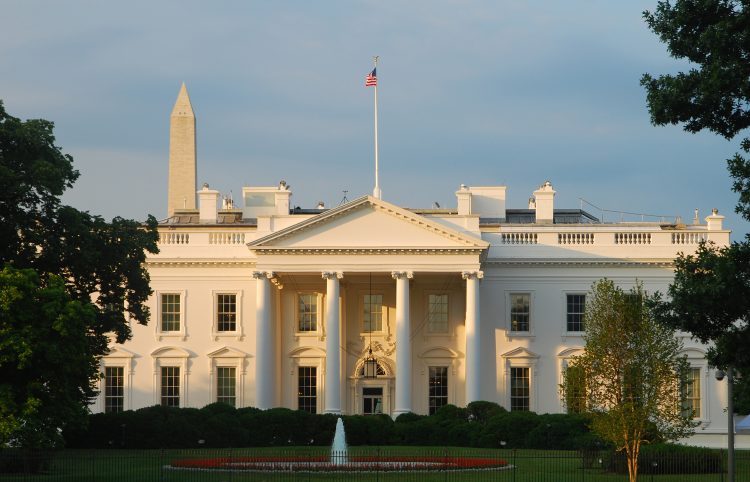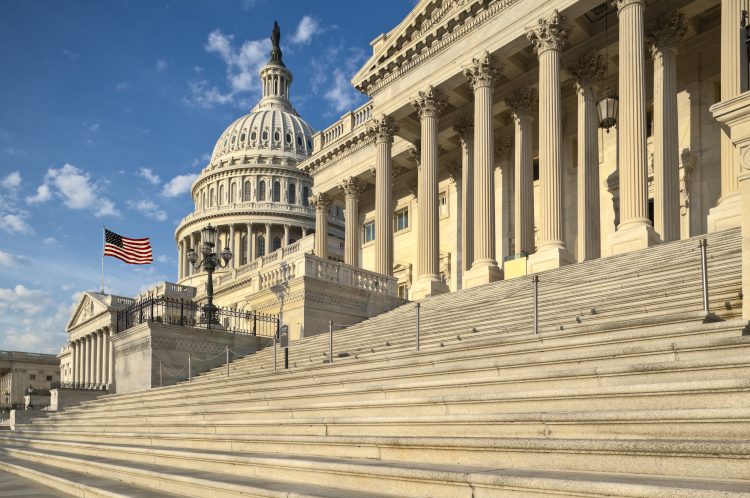This week on Facing the Future we examined President Biden’s Fiscal Year 2025 budget request, submitted to Congress on Monday, March 11. Our first guest was Dr. Josh Gordon, Director of Health Policy at the Committee for a Responsible Federal Budget. He guided us through the president’s healthcare proposals and how they fit into the broader effort of controlling healthcare spending. Then we turned to Brian Riedl, a Senior Fellow at the Manhattan Institute, for a look at other proposals in the budget and how they add up. Concord Coalition Policy Director Tori Gorman and Chief Economist Steve Robinson joined the conversation.
Presidents’ budgets are often declared “dead on arrival” because they are simply recommendations that Congress is free to ignore. With the House of Representatives in Republican control, it is clear that President Biden’s 2025 budget, which prominently features higher taxes and higher spending, is going nowhere.
Riedl said, however, that the budget is not irrelevant. “The president’s budget is not something that should be taken literally. But it is helpful for laying out the president’s vision and a good deal of the policies he’s going to push Democrats to support and the policies he could veto. So it is a helpful vision.”
“Ultimately,” Riedl said, “my problem with the President’s budget is that it’s a classic tax and spend budget in an era when serious deficit reduction is required. In this budget,
there is about $5 trillion in new taxes but instead of pairing it with $5 trillion in spending cuts in an all-out assault on the deficit most of the new taxes just go towards new spending. That is not only unhelpful with the deficit but I would argue that it actually makes deficit reduction harder because if there is $5 trillion dollars in plausible taxes out there you need to use it for deficit reduction. Otherwise, when we finally do get to deficit reduction all the best tax raising policies on the rich are now off the table. They’re gone.
So when you finally get to reducing the deficit, which we have to do at some point, now you have to tax the middle class, and do the harder stuff because you’ve already used up the easy stuff. The overall approach of marrying higher taxes with higher spending is a step backwards for the deficit. Not a step forward.”
Riedl also maintained that much of the assumed $3.2 trillion deficit reduction in the budget is illusory. “They take out the cost of extending the Trump tax cuts. President Biden has repeatedly endorsed extending the tax cuts for families earning under $400,000. That’s a cost as high as $2.4 trillion depending on who you ask. They just leave it out,” he said.
Riedl cited two other assumptions that minimize costs in the budget. For one, he said, the budget “does a one-year extension of the child credit back to the 2021 levels when it was up to $3,600 per family. We all know how this goes. Of course, they’re going to extend it. And then on the discretionary spending side, they assume huge discretionary spending cuts way out in the future when they leave office. This budget assumes discretionary spending falls below 5 percent of GDP for the first time since the 1930s.”
Turning to healthcare, which is a large and growing part of the federal budget, Gordon said, “what really stands out is that the president’s proposals are the same as last year’s budget. That’s not necessarily unusual or bad, it’s just there wasn’t much new.”
“The big picture,” Gordon said “is that the Medicare Trust Fund policies will make Medicare solvent for what they say is the indefinite future, which is certainly good news.
The problem is that it is almost entirely on the revenue side, and as we always say, it’s important to slow the growth of healthcare spending along with bringing in new revenue into the Medicare program.”
Gordon also said that another provision in the budget may tee-up “the Armageddon of fiscal policies when in 2025 all these tax cuts and other programs expire. The next Congress and the President will have to deal with them. And one of those policies is extending more generous, Affordable Care Act marketplace subsidies. The president’s budget proposes about $270 billion to extend them beyond 2025.”
On prescription drugs, Gordon described how the president’s budget would build on prior legislation allowing Medicare limited authority to negotiate prices. “The negotiation of drug prices is really a key health saver that has been enacted over the last few years, and the President’s budget tries to expand the program.”
He explained that, “The program is designed to start with 10 drugs in the first year, which will be 2026, that are going to have negotiated prices. Then you go to 15 drugs. Then you go to 20 drugs throughout the 10-year budget period. But by the end of the original time period you wind up negotiating over something like 50 to 70 of the most expensive drugs. And when you look at drug spending in the United States, it is actually highly concentrated at the top most expensive and most used drugs. So by the end of the first decade, you’ve pretty much gotten a majority of the savings. What the president’s budget wants to do is enable the president to negotiate 50 drugs right off the bat, which brings savings forward in the budget window. But I think it doesn’t ultimately change the trajectory of long-term prescription drug spending for Medicare because over the first 20 years all of the drugs are being negotiated that fit the criteria. So you’re getting budget savings, and we always are in favor of reducing the deficit and having budget savings, but you’re not doing much to change the long-term stability or sustainability of Medicare.”
Hear more on Facing the Future. I host the program each week on WKXL in Concord N.H., and it is also available via podcast. Join us as we discuss issues relating to national fiscal policy with budget experts, industry leaders, and elected officials. Past broadcasts are available here. You can subscribe to the podcast on Spotify, Pandora, iTunes, Google Podcasts, Stitcher, or with an RSS feed. Follow Facing the Future on Facebook, and watch videos from past episodes on The Concord Coalition YouTube channel.
Continue Reading










